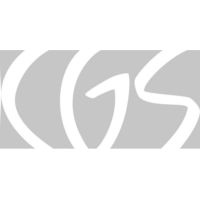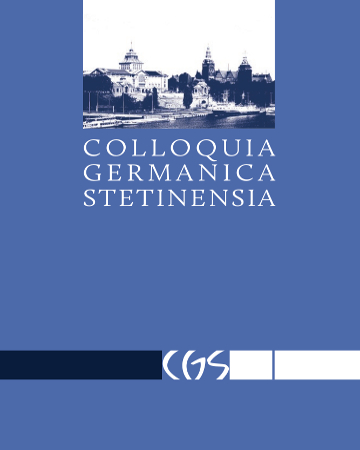







| Authors: |
Karolina
Prykowska-Michalak

Uniwersytet Łódzki, Europejski Uniwersytet Viadrina |
| Keywords: | Polish theatre German-Polish theatre relations theatre reports „Theater heute“ „Theater der Zeit“ nachtkritik.de |
| Data publikacji całości: | 2022 |
| Page range: | 15 (83-97) |
| Downloads ?: | 235 |
| 1. | „A-Polen und B-Polen“. Theater der Zeit 4 (2005). Zugriff 22.09.2021. https://www.theaterderzeit.de/Cart/Index. |
| 2. | Borowski, Mateusz, Małgorzata Sugiera (Hg.). Theater spielen und denken. Polnische Texte des 20. Jahrhunderts. Frankfurt a. M.: Suhrkamp Verlag, 2008. |
| 3. | Burzyńska, Anna R. The good change. Zugriff 19.08.2019. https://nachtkritik.de/index.php?option=com_content&view=article&id=12175:theaterbrief-aus-polen-13-the-good-change-in-polish-theatre&catid=416&Itemid=100055. |
| 4. | Fałkowski, Mateusz, Agnieszka Popko. Niemcy o Polsce i Polakach 2000–2006. Warszawa: Instytut Spraw Publicznych, 2006. Zugriff: 30.04.2020. https://www.isp.org.pl/pl/publikacje/niemcy-o-polsce-i-polakach-2000-2006-glowne-wnioski-z-badania. |
| 5. | „Gegen die Wand. Konservative Revolution in Polen“. Osteuropa 1/2 (2016). Zugriff 02.01.2022. https://zeitschrift-osteuropa.de/hefte/2016/1-2/. |
| 6. | Irmer, Thomas. „Lech ohne Lächeln“. Theater Heute 7 (2006): 70. |
| 7. | Klemm, Wojtek. Theater des Lebens, Theater des Todes. Zugriff 30.07.2019. https://nachtkritik.de/index.php?option=com_content&view=article&id=4259:theaterbrief-aus-polen-5-theater-und-staatstrauer&catid=416&Itemid=100055. |
| 8. | Lawaty, Andreas, Hubert Orłowski (Hg.). Deutsche und Polen. Geschichte, Kultur, Politik. München: C.H. Beck, 2003. |
| 9. | Łada, Agnieszka. Dwadzieścia lat minęło. Polacy o zjednoczeniu Niemiec i stosunkach polsko-niemieckich w dwudziestą rocznicę zjednoczenia Niemiec. Warszawa: Instytut Spraw Publicznych, 2010. |
| 10. | Łada, Agnieszka. Patrzymy w przyszłość. Polacy o polsko-niemieckiej współpracy i o znaczeniu historii we wzajemnych. Warszawa: Instytut Spraw Publicznych, 2011. |
| 11. | Łada, Agnieszka. Wspólny kierunek różne perspektywy. Warszawa: Instytut Spraw Publicznych, 2017. |
| 12. | Łada, Agnieszka. Barometr Polska – Niemcy 2015. Polacy o polsko-niemieckim partnerstwie we wspólnej Europie. Zugriff 30.07.2019. www.isp.org.pl/pl/publikacje/barometr-polska-niemcy-2015-polacy-o-polsko-niemieckim-partnerstwie-we-wspolnej-europie. |
| 13. | Maj, Maria. „Po premierze, rozmawiają Maria Maj i Grzegorz Jarzyna“. Didaskalia 53 (2003): 65. |
| 14. | Mróz, Krzysztof. Das Polenbild in den deutschen Medien: Inhaltsanalytische Untersuchung des Images von Polen als ein wettbewerbsfähiger Standort in ausgewählten deutschen Printmedien. Saarbrücken: VDM Verlag Dr. Müller, 2008. |
| 15. | Nowacka, Iwona. „Polnisch-polnischer Kulturkampf“. Theater der Zeit 10 (2019). Zugriff 03.02.2022. https://www.theaterderzeit.de/2017/10/35501/komplett/?print=print. |
| 16. | Pawłowski, Roman. Welches Theater kommt nach den Zwillingen? Zugriff: 30.09.2019. https://www.nachtkritik.de/index.php?option=com_content&view=article&id=991&Itemid=99. |
| 17. | Quickert, Anja. „Heldendämmerung. Der polnische Kulturminister streicht dem Theaterfestival Malta willkürlich bereits bewilligte Gelder“. Theater heute 8/9 (2017): 1. |
| 18. | Quickert, Anja. „Provokation gelungen, Wirkung offen“. Theater heute 4 (2017): 68. |
| 19. | Staszczak-Prüfer, Natalia. Rosenkranz ins Gesicht. Zugriff 19.08.2019. https://nachtkritik.de/index.php?option=com_content&view=article&id=13772:theaterbrief-aus-polen-15-klatwa-fluch-von-oliver-frljic-in-warschau-analyse-eines-hochpolitischen-theaterskandals&catid=416&Itemid=100055. |
| 20. | Taylor, Charles. A Secular Age. Cambridge, MA: Harvard University Press, 2007. |
| 21. | Uberman, Iwona. Absehbares Desaster. Zugriff 19.08.2019. https://nachtkritik.de/index.php?option=com_content&view=article&id=13115:theaterbrief-polen-14-iwona-uberman-ueber-den-politischen-intendanzwechsel-am-legendaeren-teatr-polski-in-wroclaw-der-volksbuehne-von-polen&catid=416&Itemid=100055. |
| 22. | Uberman, Iwona. „Herzlich unwillkommen“. Theater heute 2 (2017): 1. |
| 23. | Uberman, Iwona. Mythos auf dem Prüfstand. Zugriff 19.08.2019. https://nachtkritik.de/index.php?option=com_content&view=article&id=7882:theaterbrief-aus-polen-9-neue-theaterstuecke-untersuchen-die-revolutionaere-bewegung-der-solidarno&catid=416&Itemid=100055. |
| 24. | Uberman, Iwona. „Widz w grupie morderców. O pracy nad Łaskawymi mit Armin Petras spricht Iwona Uberman“. Teatr 1 (2012): 24–27. |